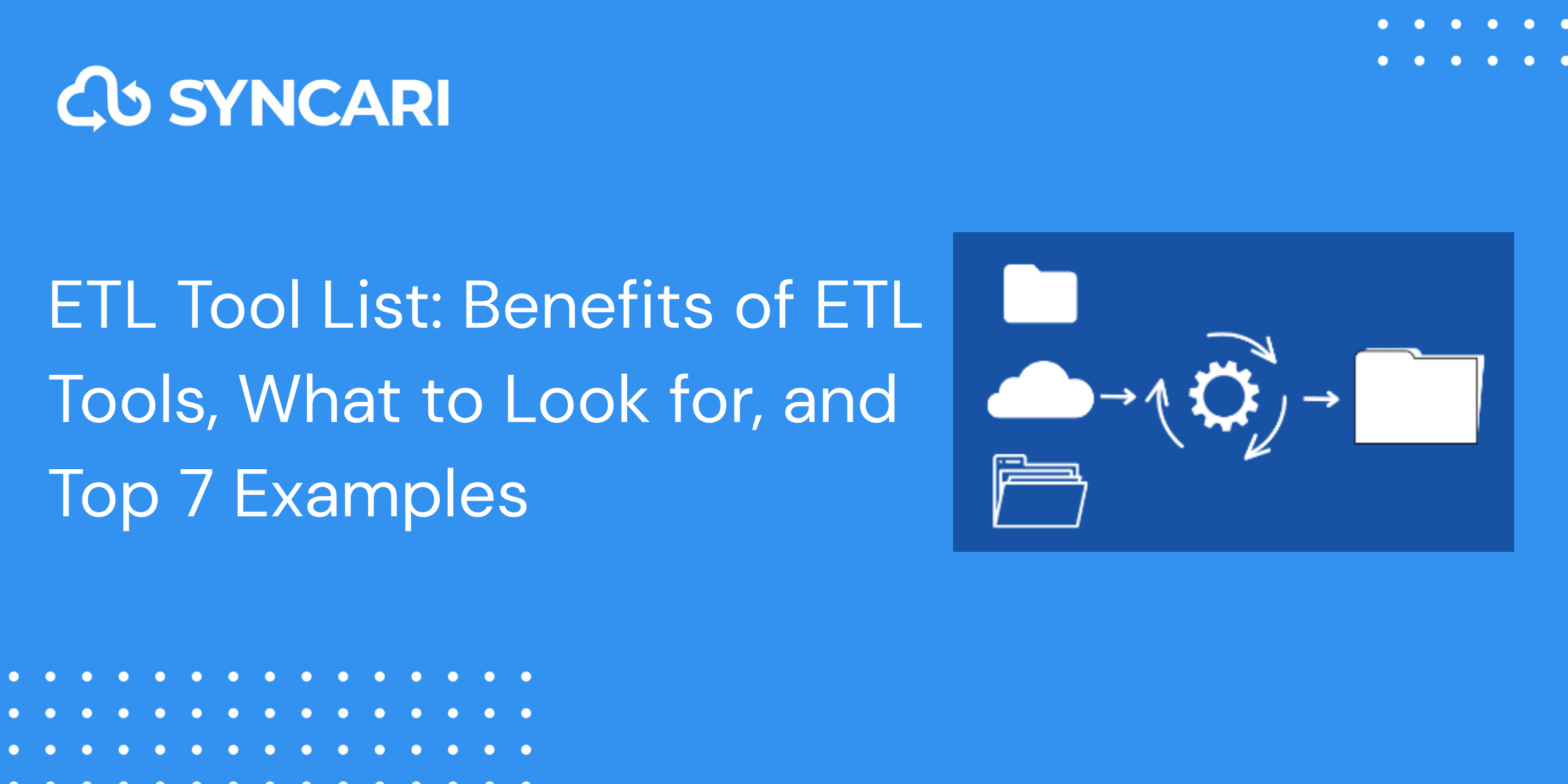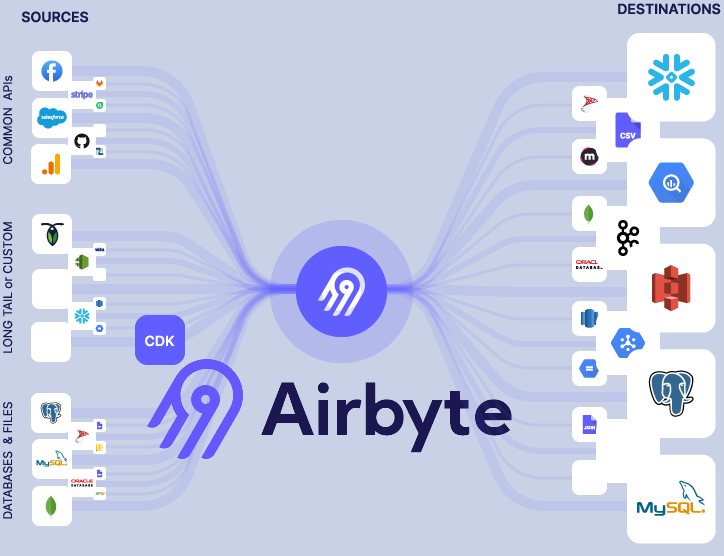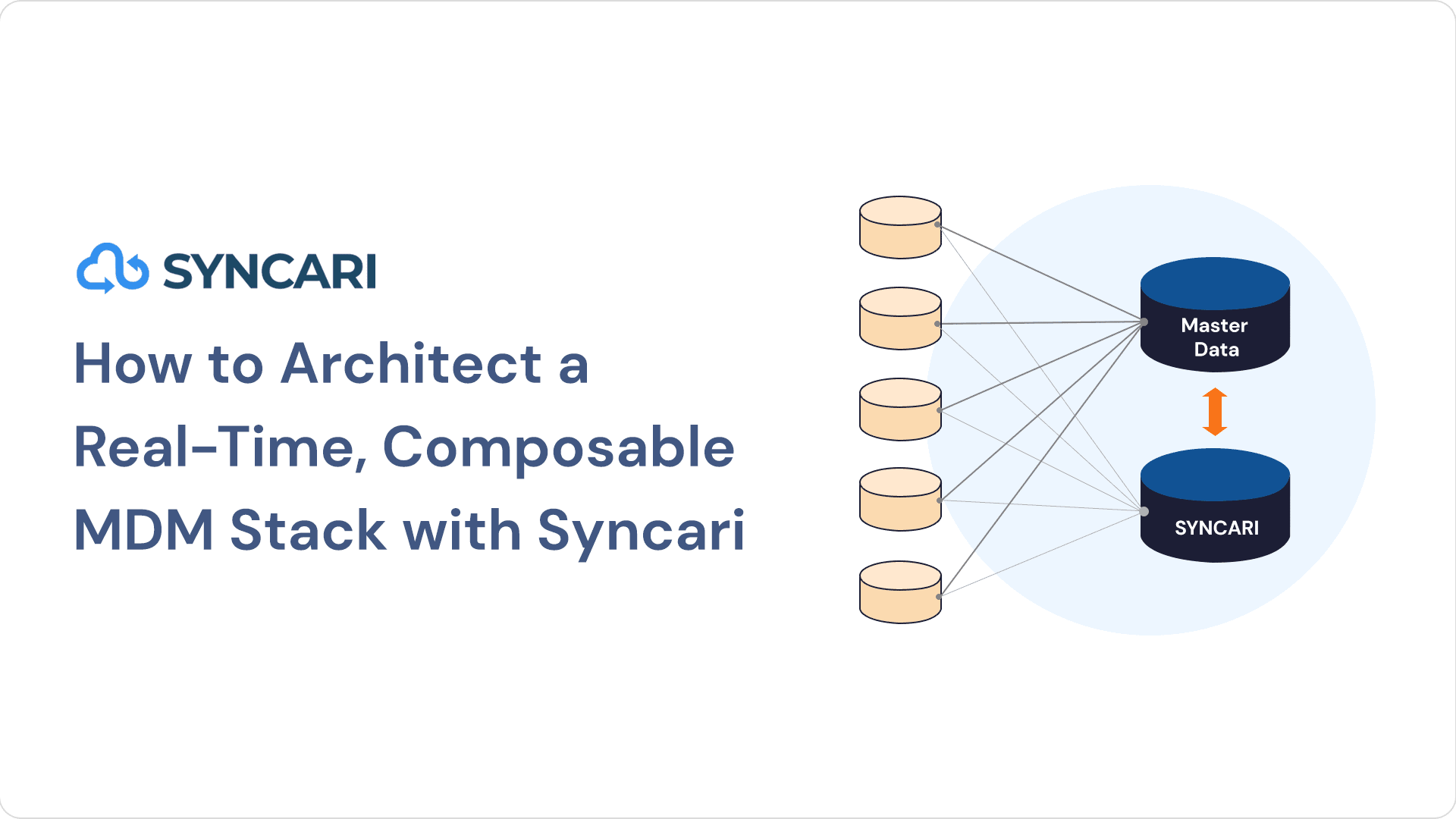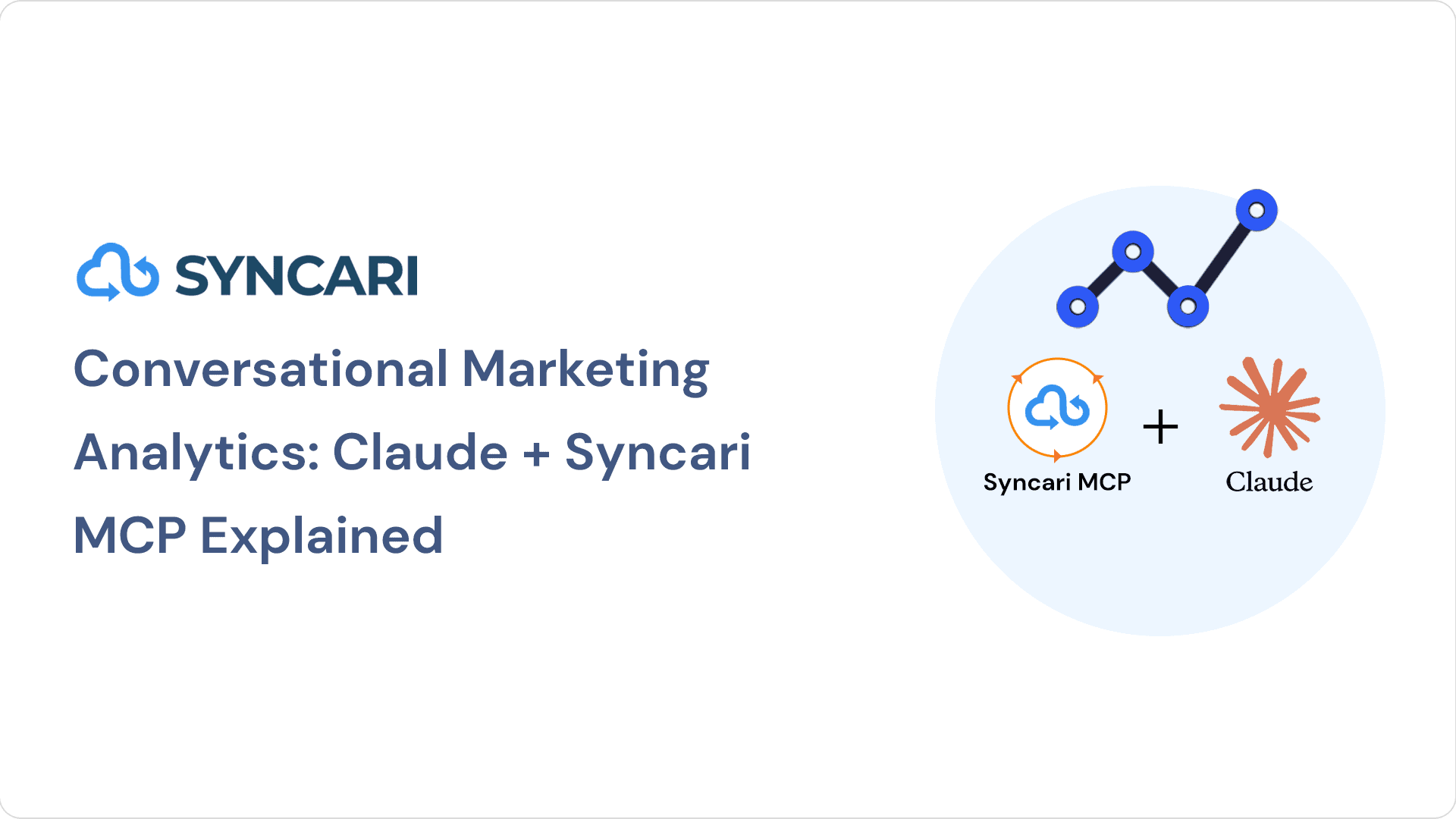In the rapidly evolving information age, your brand needs a single “source of truth” now more than ever.
Data is crucial for your employees, internal teams and your customers. Raw data needs to be transformed into more readable formats for you to make informed decisions to help your brand thrive.
ETL processes enable you to prevent forming data silos and keep your teams on the same page regarding disparate data sources to better understand the target systems.
To help your data management efforts, we dive deeper into ETL tools and their benefits and present an ETL tool list that contains the 7 best tools in the market so that you can decide the perfect fit for your company.
What is ETL?
ETL stands for Extract, Transfer, Load and refers to taking data from varied sources, scrubbing and cleansing them to maintain quality data, and storing them in data warehouses.
Each of these processes is called a pipeline, and the goal is to consolidate the company-wide data into a unified data source.
ETL tools are software designed to carry out these processes for various levels of organizations. These tools enhance the data quality by storing them in a single accessible format.
They simplify the ETL process for a clear understanding of the company’s performance and help with informed business decisions so that your company can grow with a complete understanding of its needs.
Benefits of ETL Tools
With every new data acquisition mode, companies do not get this data in a format that can be acted upon immediately. ETL processes are important to consolidate data in a format that can be used for better business decisions and performance analytics.
Let’s take a closer look into the various benefits that ETL tools bring to your data management strategies:
The most direct and obvious advantage ETL tools provide is the unified view of the vast data related to your company. Combining data from various sources and bringing it into a single system gives you the full picture of analytics related to your company. ETL tools play a role in this by bringing data from a variety of sources to a data warehouse.
Companies value this central data source, or the single “source of truth,” to nurture and grow their presence in the market.
Data analysts can bypass repetitive tasks and manual work related to data entry, cleansing, etc. ETL tools can be incorporated to carry out regular data management activities.
ETL tools can be configured for individual business needs for smaller and larger enterprises. They can also come with cloud-based solutions to provide data transformation for any batch size, making them a perfect tool to handle big data.
Most vendors consistently add new features and connectors to cope with newer challenges in real time.
The best ETL tools promote the lineage and accessibility of data to all parties involved. ETL tools focus on providing accurate and insightful data while making it more available to business users and analysts alike.
What to look for in ETL Tools
Every organization needs to manage and store data differently. For this reason, extensive care must be taken before choosing an ETL tool to process your crucial data with.
Here are the criteria to consider when looking for the optimal ETL tool. I have also used the same to create the best ETL tool list.
- Use Case: The most important step is understanding the exact data requirement of your company. Small businesses and startups don’t require the same robust and complex ETL tools of larger companies with more data to store and process.
- Ease of Use: Everything from detailed GUIs and integrations with popular data sources plays into the ease of use for a certain ETL tool. The no-code nature of Enterprise Software can prove to be easier to deal with than a Custom ETL tool.
- Connectors: Connectors refer to the connections which form between data sources. Whether on-premise or cloud-based, the ETL tool you choose must offer several integrations to reach your data source and connect it with the specific target system.
A range of integrations also allows gathering data from disparate sources and storing it in a standardized format.
- Technical Expertise: With the different types of ETL tools, you must have figured out by now that they are designed for developers and users of various skill sets.
An ETL tool that requires manual coding and complex queries to meet changing data requirements will naturally be suited to a team of strong data engineers.
- Advanced Features: Features like data transformations, enhanced data quality, and automation are significant factors when choosing an ETL tool.
Data transformation can be simple or complex, ranging from lookups and joins to converting unstructured data into structured formats. Automation is essential for larger companies carrying out several ETL processes simultaneously.
- Cost Structure and Budget: Finally, the cost of the tool itself and the additional resources needed to maintain and conduct ETL processes play an important factor when choosing your ETL tool.
Open-source tools might be free but are usually code-sensitive and need experienced developers to handle and use. Enterprise Software tools do not usually require coding experience and can be used by users of all coding expertise.
[ Related: Top 5 Data Cleansing Tools Every Data Professional Needs to Know About ]
Top 7 ETL Tools in the Market
Now that we understand the ETL process let’s take a look at the best ETL tool list which I have created after taking the above criteria into account:
1. Syncari 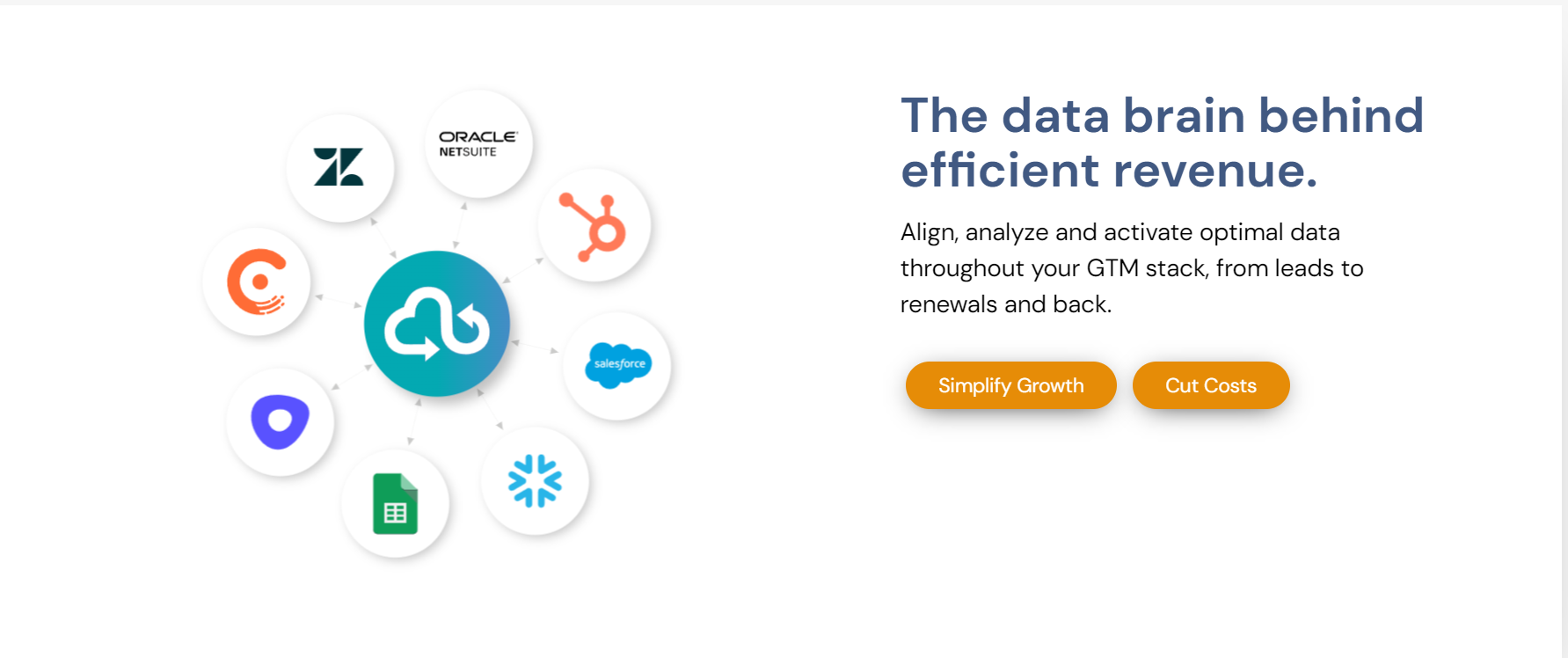
Starting our ETL tool list, we have Syncari, a cloud-based “anywhere ETL” tool focusing on data automation and management to help businesses make more efficient workflows. It relies on AI to reduce the manual effort required for mundane tasks such as data mapping, data cleaning, and data entry.
Syncari is not your typical ETL tool, but instead allows you to perform data sync between the warehouse, business applications, and product analytics, in a stateful, continuous way. This achieves what many teams are trying to accomplish with ETL: a centralized data governance, master data management, change data capture, and the ongoing maintenance of high quality data.
With their patented stateful sync, Syncari unifies data across all systems and applications for better data quality. Cleaner data enables you to make informed decisions for optimal customer satisfaction.
Stateful sync allows for detecting data changes and real-time updates to keep data unified across all systems, irrespective of the number of simultaneous changes. This feature keeps your data source free of duplicates and inconsistencies. 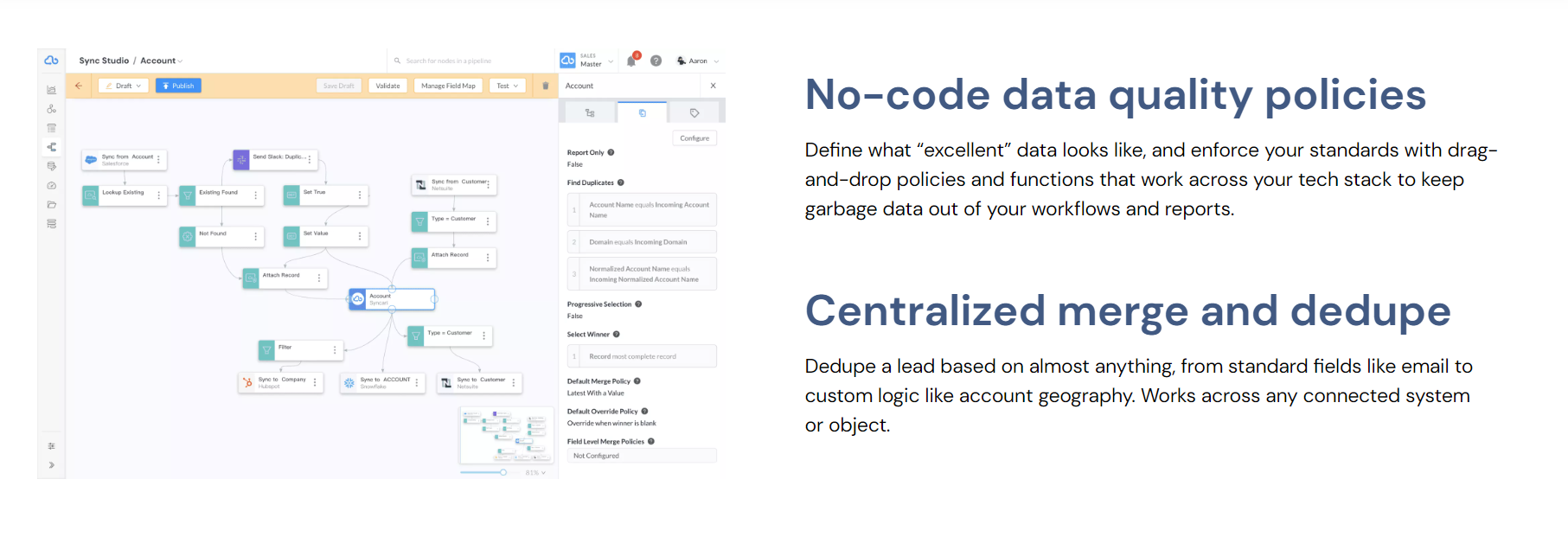
Similar to the no-code nature of Open-Source tools, Syncari’s Workflow Automation allows users of all technical experiences to create custom data workflows based on their needs.
In addition to syncing, Syncari employs strong algorithms and machine learning to detect and diagnose conflicts based on set guidelines to ensure error-free data. These algorithms make Syncari’s data integration method stronger than most ETL tools.
Syncari’s connectors offer better flexibility and scalability than standard connectors. Syncari is built on modern microservice architecture, and thus each connector can be customized to meet the specific need of that connector.
You can opt for a free trial or book a demo to try their features risk-free and simplify your company’s data requirements.
2. Informatica PowerCenter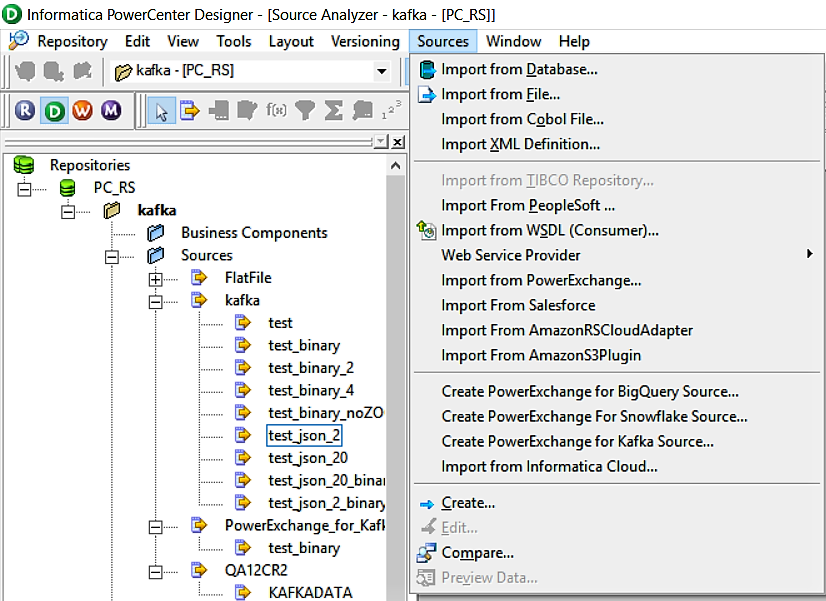
Informatica PowerCenter is one of the most popular ETL tools trusted by industry professionals and large enterprises. It is a metadata-driven platform considered best for IT teams to streamline data pipelines.
Informatica hosts several connectors for data sources and warehouses, such as Salesforce, Azure, AWS, SQL, etc. Informatica can be a steeper learning curve for some users and smaller organizations.
Power Centers support advanced data formats and hosts features like Designer to create accurate data flows and Workflow Manager to define the flow of tasks.
You can also automate your ETL process and get better insights into your dataset using predictive analytics and machine learning algorithms.
3. AWS Glue 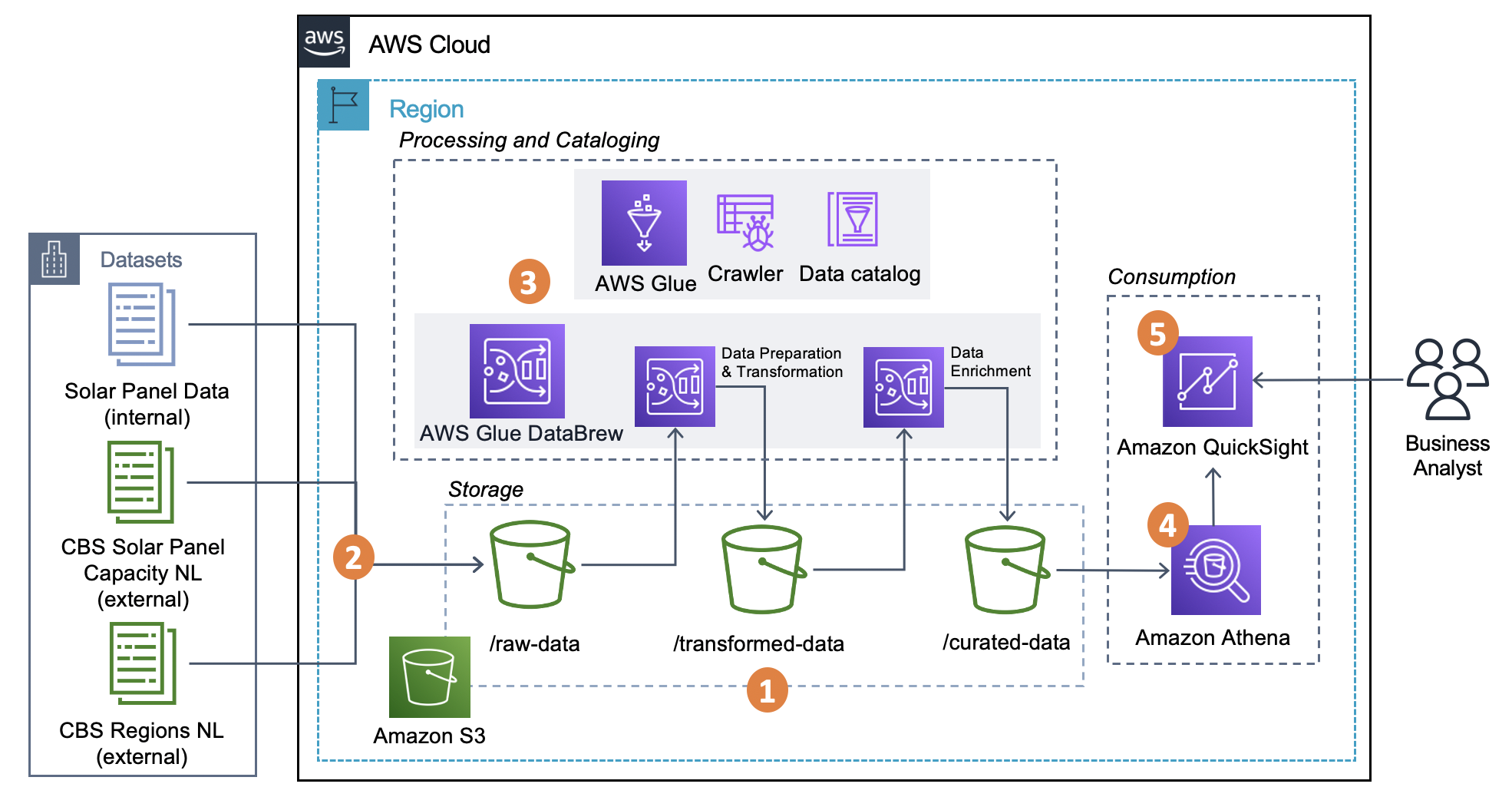
AWS Glue is a cloud-based server less tool that focuses on data integration. Users can manage and set it up with no additional infrastructural cost. AWS Glue connects to on-premise data sources so that you can transfer your data to the cloud.
Developers who know Python use the platform written in the programming language to write pipelines. AWS Glue supports ETL, ELT, streaming, and other business needs through data processing and workloads.
Users can also access different functions, like the AWS Glue Data Catalog and AWS Glue Studio.
4. Hadoop
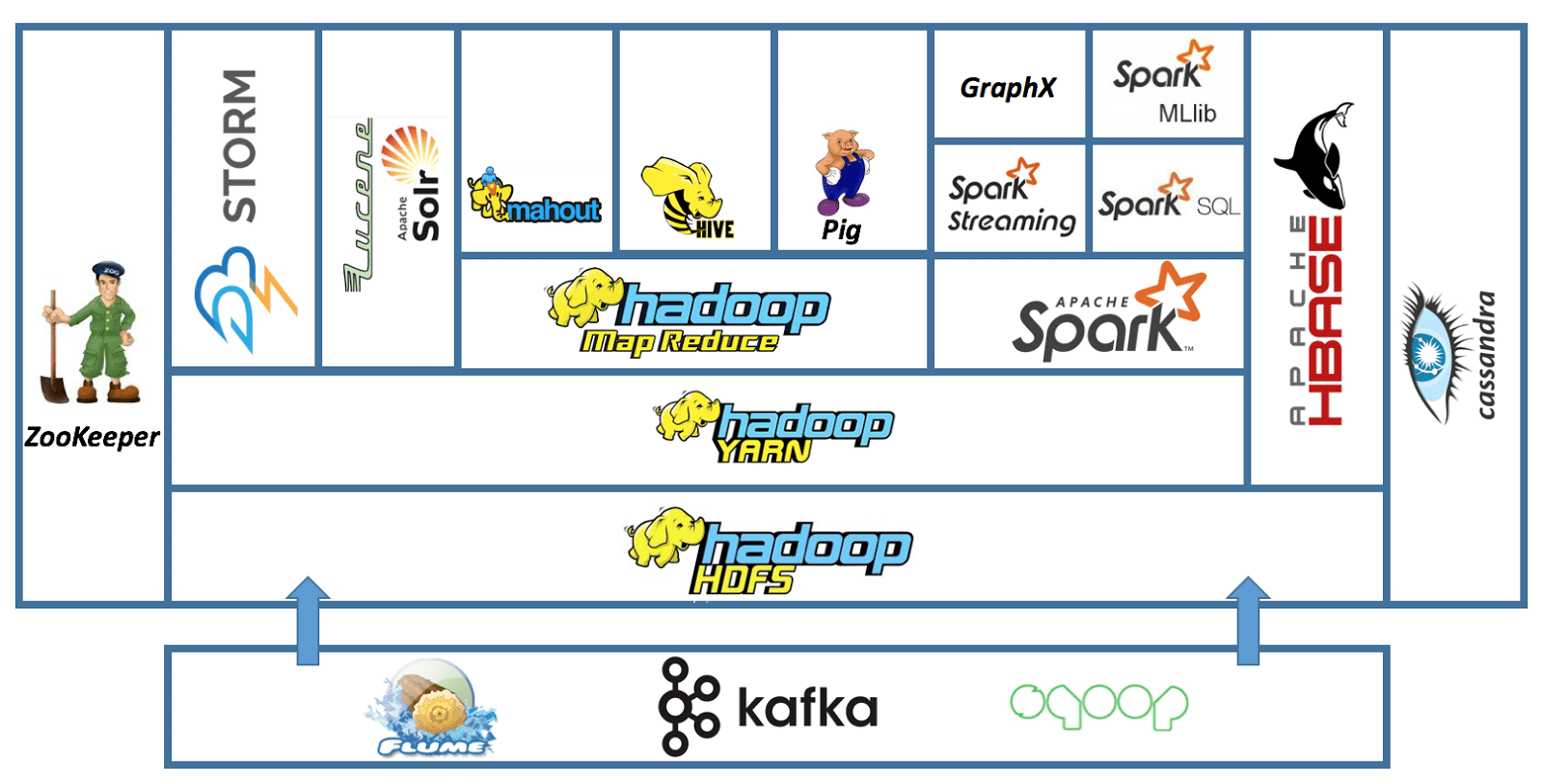
Hadoop is an Open-Source framework that analyzes, processes, and stores large amounts of data by distributing it to a cluster of computer servers. Some technologies are used for ETL processes in this wide range of projects.
The software library combines the power of multiple machines to detect and handle failures as they arise. New open-source projects often come up that focus on data transformation.
In this cluster, the Hadoop Distributed File System (HDFS) stores data, where it can be cleansed and transformed. Hadoop YARN helps users with resource management and job scheduling.
MapReduce is commonly used for data transformation, and Hive converts complex SQL queries into MapReduce operations.
5. IBM Datastage 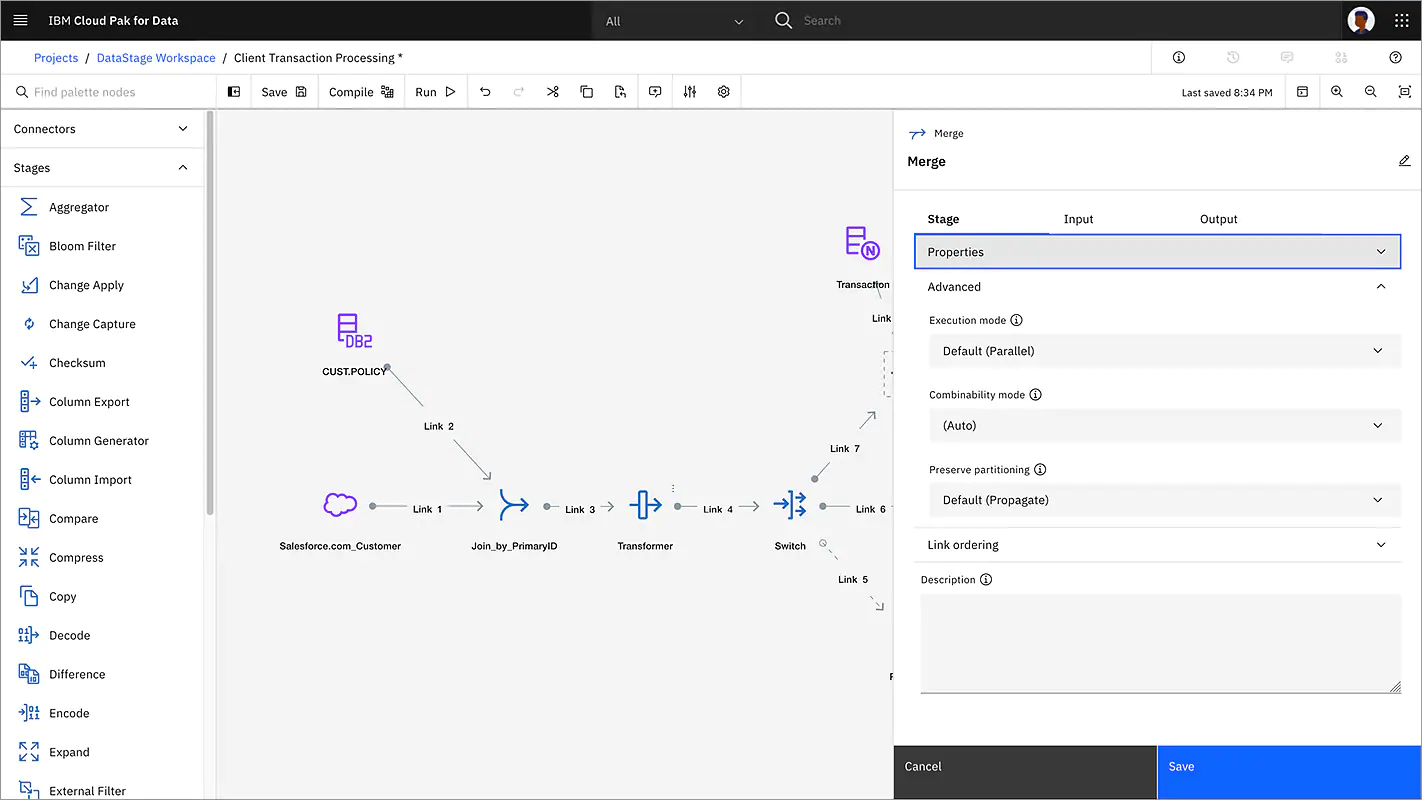
IBM Infosphere Datastage is an Enterprise Software ETL tool part of the Information Infosphere Serve family of products. The tool focuses on data integration on mainframe computers with a client-server design.
Features like load balancing and parallelization help it be one of the fastest ETL tools in the market. It also hosts features similar to Informatica, like metadata support and automated failure detection.
Seamless integration with various connectors means you and your team can process, transform, and store data into target systems without managing several platforms.
6. Stitch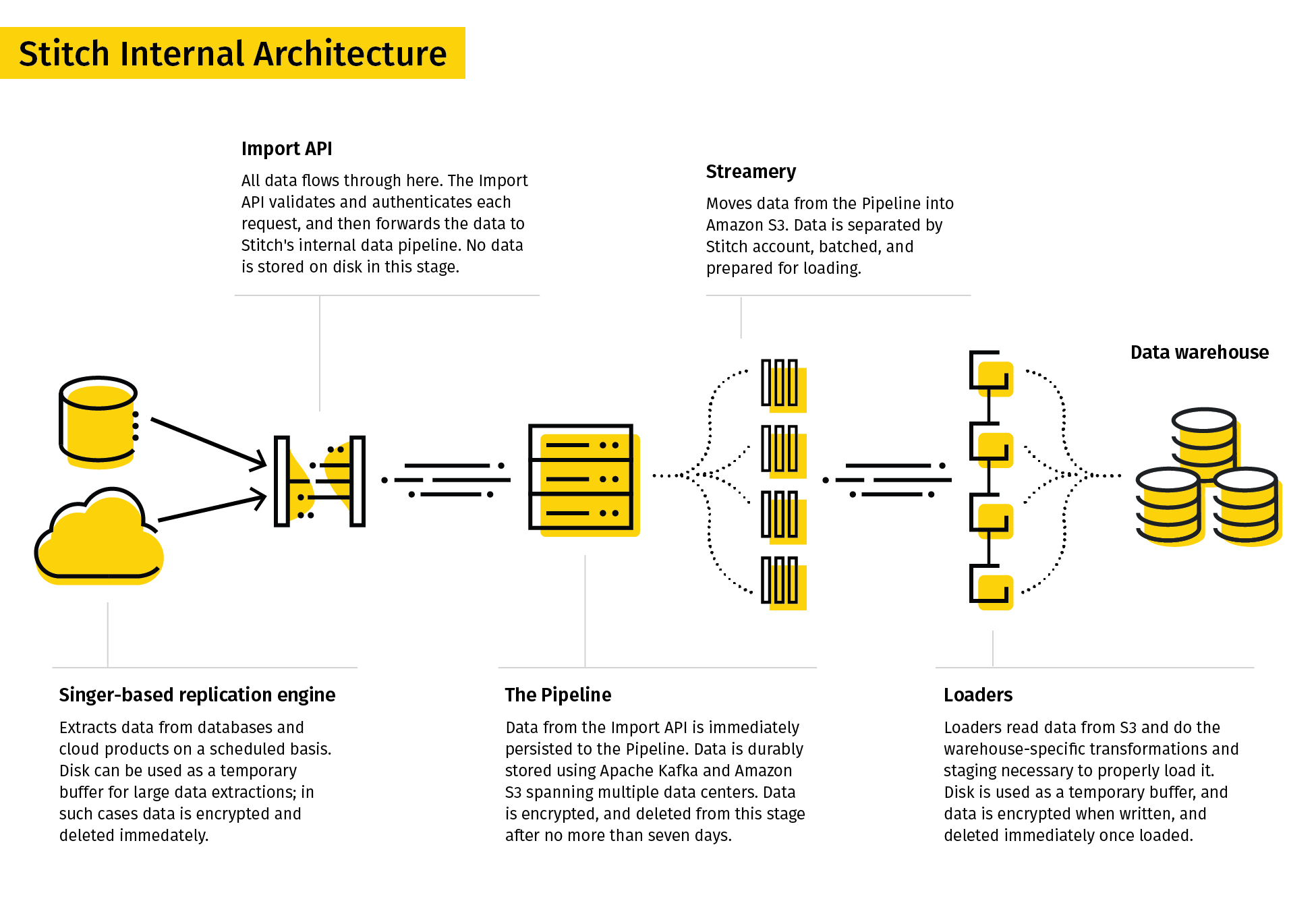
Stitch is a relatively new cloud-based ETL tool marketed toward data teams. It’s built on the open-source code Singer and focuses on data integration through replication from several data sources and applications.
Their connectors include SaaS platforms and warehouses to centralize data without manual coding. Experienced developers can use their open-source code to extend their applications and features. But because of its simplicity, it relies on simple transformations.
Despite this, your team has full visibility of data through insights and analytics across all data platforms to meet internal and external requirements.
7. SAS Data Management
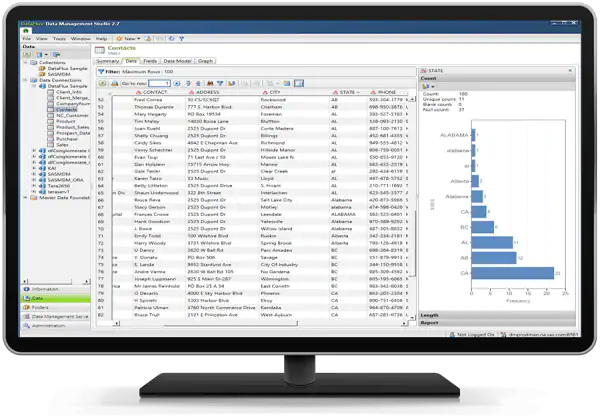
SAS Data Management is an Enterprise Software that connects to data regardless of data source, such as cloud, legacy systems, CRM platforms, data lakes, etc.
Users with little technical experience can extract data quickly from any source for detailed insights into the company and business performance. SAS is incredibly flexible and supports third-party integrations for visualization with BI tools.
8. Fivetran
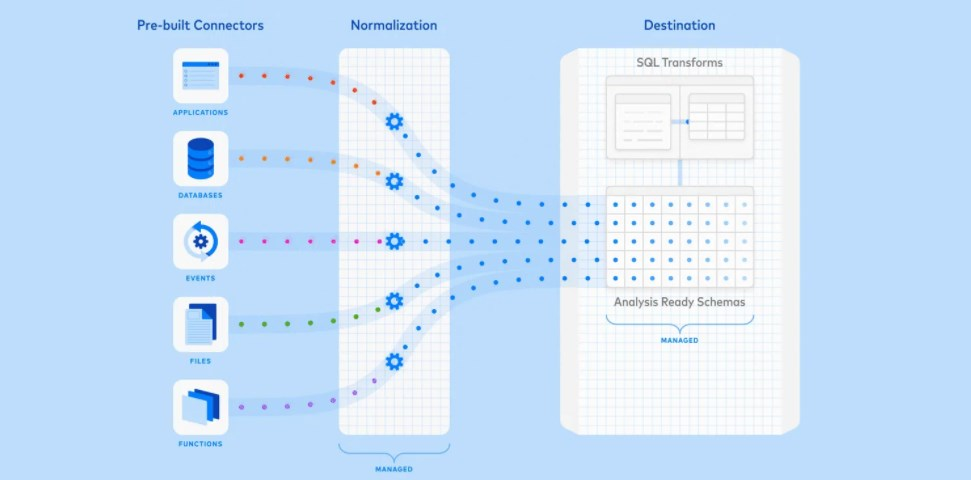
Fivetran is a data movement tool for cloud platforms that relies on multiple connectors for data sources like Salesforce and Microsoft Azure. It simplifies data movement with automation to make it accessible for companies of any size.
Business users without technical experience can create and streamline data pipelines without coding. The vast amount of connectors and pre-built data models help you make pipelines that require minimal maintenance and are scalable.
While you can request them to add more connectors, you would require coding and SQL knowledge to create your own in case you have unique requirements.
The one major downside worth mentioning is that, as recently as 2022, Fivetran switched to a Monthly Active Row pricing model. This makes it incredibly difficult to predict costs, and very lucrative, certainly not in your best interest.
9. Airbyte
Airbyte is an open-source data integration platform hosting 300+ connectors, making it the largest catalog of connectors to create customized data pipelines.
Airbyte’s open-source nature means the community is always adding new connectors. The low-code framework lets you build personalized data sources with fewer hassles. You can sync data from applications, databases, and APIs to warehouses.
Conclusion
ETL processes are an integral part of charting your company’s growth. You and your team can be lost in the dark without accurate data reports and storage to help inform business decisions. Depending on unstructured data results in a reduced ROI and slower workflow.
Among the choices in this best ETL tool list, it is clear why Syncari is our leading choice for unified data. Automating and syncing data can give you a holistic view of your progress while keeping your team informed in real time to fine-tune various business pipelines.
Try out Syncari’s features risk-free with their free trial, or book a demo to organize your data efficiently and make more actionable decisions to help your company thrive.
